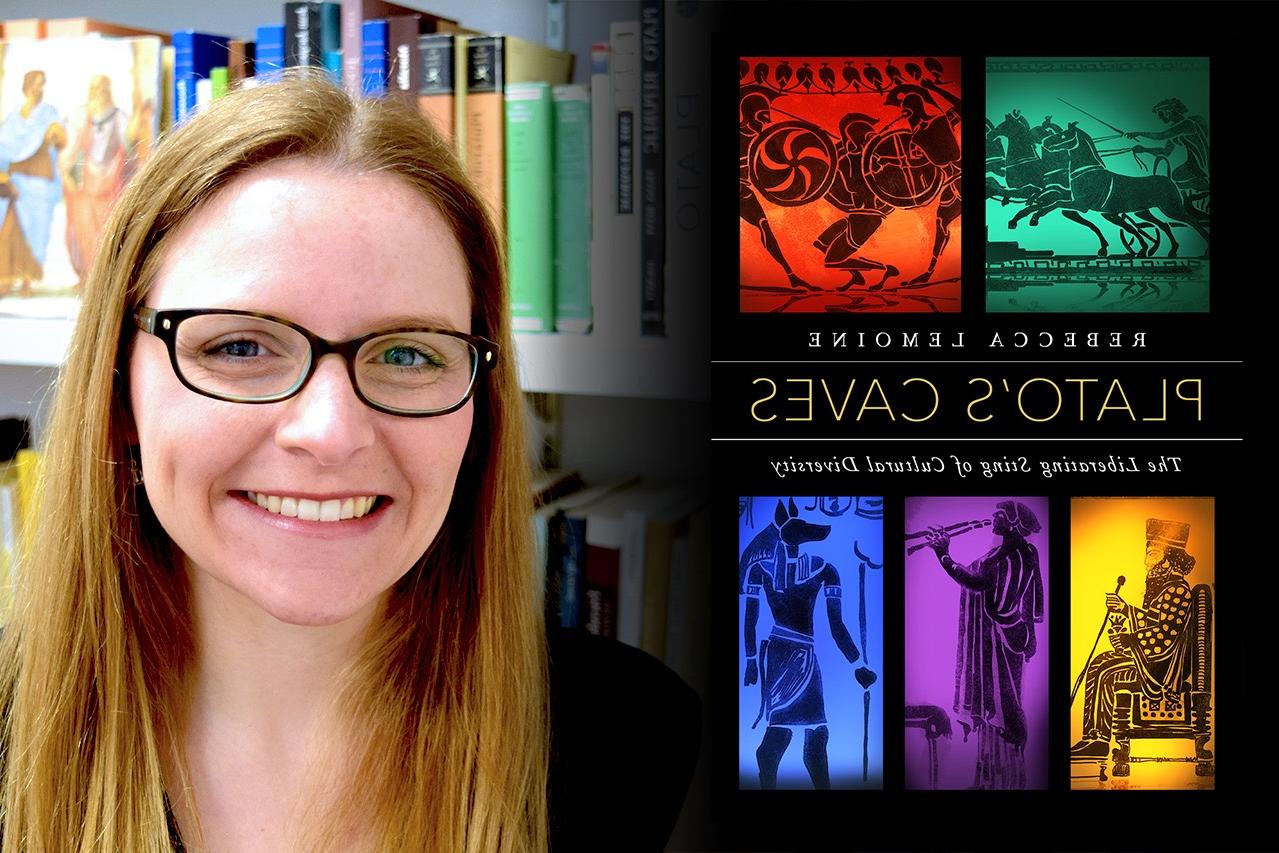Research Thursdays - Book by Rebecca LeMoine Offers a New Examination of Plato
Thursday, Oct 22, 2020
Rebecca LeMoine, Ph.D., associate professor of political science, recently had her book Plato’s Caves: The Liberating Sting of Cultural Diversity, published by Oxford University Press. The book defends the thesis that Plato was a friend of cultural diversity, contrary to many contemporary perceptions. Through close readings of four Platonic dialogues, “Republic,” “Menexenus,” “Laws,” and “Phaedrus,” LeMoine recovers Plato’s unique insight into the promise, and risk, of cross-cultural engagement. Like the Socratic “gadfly” who stings the “horse” of Athens into wakefulness, foreigners can provoke citizens to self-reflection by exposing contradictions and confronting them with alternative ways of life. The painfulness of this experience explains why encounters with foreigners often give rise to tension and conflict. Yet it also reveals why cultural diversity is an essential good. Simply put, exposure to cultural diversity helps one develop the intellectual humility one needs to be a good citizen and global neighbor. By illuminating Plato’s epistemological argument for cultural diversity, Plato’s Caves challenges readers to examine themselves and to reinvigorate their love of learning.
LeMoine’s book makes three major contributions to the scholarship around Plato. First, the book explores the role of the foreigner and interpolity relations in Plato’s theory, something that has not been sufficiently looked at before. Second, the book challenges the dominant view of Platonic political thought as xenophobic. And finally, the book contributes more broadly to our understanding of cultural diversity by illuminating Plato’s unique argument in favor of the epistemological and political benefits of cross-cultural engagement.
“In this startling new reading of Plato, Rebecca LeMoine uncovers a Plato whose dialogues foster an appreciation of rather than hostility to cultural diversity. In so doing, she brings Plato into conversation about the benefits of cross-cultural engagements, highlighting how the ‘sting of foreign gadflies’ leads to the wonder that is emblematic of Socratic wisdom.”
- Arlene Saxonhouse, Department of Political Science, University of Michigan
LeMoine received her Ph.D. in Political Science from the University of Wisconsin-Madison in 2014. She specializes in political theory, teaching a wide range of courses including ancient political thought, modern political thought, American political thought, music and politics, literature and political theory, and other topics. Her research brings ancient political thought, particularly Platonic political philosophy, to bear on contemporary discussions related to cultural diversity and global justice. In addition to her book Plato’s Caves, she has published articles in numerous academic journals including The American Political Science Review, History of Political Thought, and Polis: The Journal for Ancient Greek and Roman Political Thought. She is currently working on her second book manuscript, tentatively titled The Song Remains the Same: Music, Culture, and Politics in Ancient Greek Thought. This will be the first book-length investigation of music, culture, and politics in ancient Greek thought from the archaic through the classical periods.
(Printable Version)


